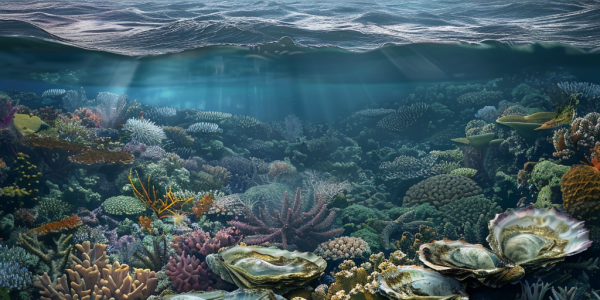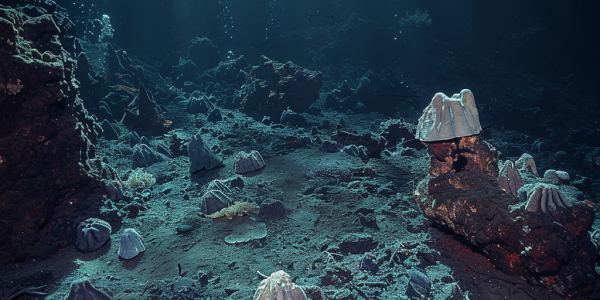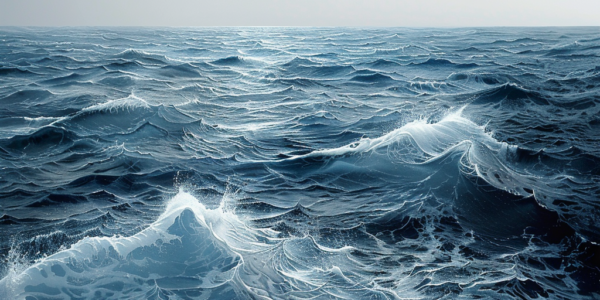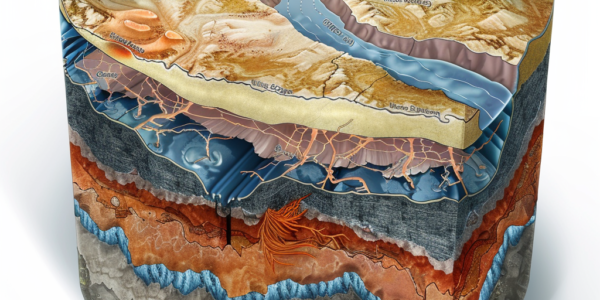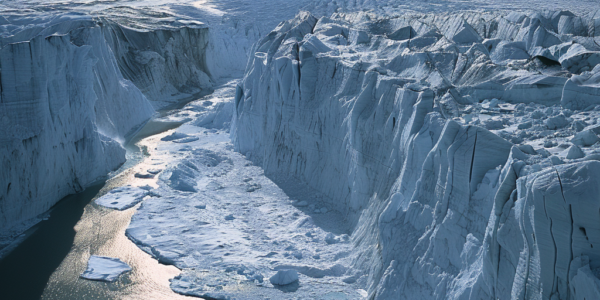Groundbreaking Discovery Reveals Vast Ocean Hidden Beneath Earth’s Crust
Recent scientific discoveries reveal a vast ocean hidden beneath the Earth’s crust, potentially containing three times more water than all the oceans combined. Geophysicists have identified this reservoir within a mineral called ringwoodite, which retains water in a unique form. This groundbreaking finding could reshape our understanding of the Earth’s water cycle and geological processes, highlighting the mysteries still hidden within our planet.
Study Reveals Impact of Ocean Noise Pollution on Oysters and Marine Ecosystems
Recent research from the University of Adelaide reveals that human-generated noise pollution is disrupting marine ecosystems, particularly affecting native oysters. The study emphasizes the critical role of natural sounds in the ocean for the settlement and survival of baby oysters, highlighting the detrimental impacts of anthropogenic noise from shipping and industrial activities. As conservationists call for action, understanding and mitigating noise pollution is vital for preserving marine biodiversity and ecosystem health.
Groundbreaking Discovery: ‘Dark Oxygen’ Generated by Metallic Nodules in Pacific Ocean
Researchers have discovered a groundbreaking phenomenon in the Pacific Ocean, where polymetallic nodules generate oxygen in total darkness, challenging traditional beliefs about life on Earth. This study highlights the ecological implications of mining in the Clarion-Clipperton Zone, emphasizing the need for careful environmental consideration as valuable resources are extracted from the ocean floor.
Sandals Resorts Celebrates World Oceans Day with Ocean Preservation Initiatives
Sandals Resorts International celebrates World Oceans Day with ocean preservation updates in the Caribbean, welcoming Aquanaut Fabien Cousteau and PROTEUS™ Scientists to Sandals Royal Curaçao. The initiative aims to drive innovation in the blue economy and inspire kids to be sustainability-minded through programs like Future Goals. Join the movement to protect our oceans!
AI Mapping Reveals Seafloor Invertebrate Activities Worldwide
Scientists from the U.S. and the U.K. have used AI to map seafloor invertebrate activities, shedding light on the importance of marine sediments in global ecosystems. The study, led by Texas A&M University, University of Southampton, and Yale University, provides valuable insights into ocean health and climate change responses.
Mysterious Wave Anomaly Off African Coast Sparks Global Mystery
A mysterious wave anomaly off the coast of Africa sparked global speculation about aliens, but it was later revealed to be a result of a ‘model error’ in a weather-mapping system. Despite the frenzy of speculation, the anomaly serves as a reminder of the potential fallibility of data interpretation and was not evidence of extraterrestrial activity.
Hidden Impacts of Ocean Warming and Acidification Revealed
Groundbreaking meta-analysis reveals the hidden impacts of ocean warming and acidification on marine animals’ biological responses. Study highlights the urgent need for proactive measures to mitigate climate change impacts on marine life and preserve biodiversity.
Scientists Discover Massive Subterranean Ocean 400 Miles Underground
Recent study reveals a massive subterranean ocean 400 miles underground, challenging our understanding of the planet’s water cycle. The water is located in the mantle transition zone and was discovered through tectonic wave measurements. This challenges previous beliefs about the distribution of water within the Earth.
Alarming Ice Loss in Northeast Greenland Glacier Revealed by Research
Recent research by the Alfred Wegener Institute reveals significant ice loss of over 160 meters in thickness at the 79° N-Glacier in northeast Greenland since 1998, attributed to warm ocean water melting the glacier from below. The study highlights the impact of global warming on the stability of the floating ice tongue and emphasizes the urgent need to address the effects of climate change on polar ice masses.
Unprecedented Warmth in Northern Hemisphere Oceans Raises Concerns
Recent studies have shown unprecedented warmth in the oceans of the Northern Hemisphere, with sea-surface temperatures in the North Atlantic averaging around 68 degrees Fahrenheit, a highly unusual figure for this time of year. 41 percent of the global ocean experienced heat waves in January, indicating a concerning trend. Research indicates that by the end of the century, a significant portion of the ocean could be in a permanent heat wave state, with potential consequences including stronger hurricanes, rising sea levels, and unsustainable conditions for marine life.


